Great things come in small packages, they say, and nowhere is this truer than with the Teacup Poodle. This tiny dynamo, brimming with personality and intelligence, is a wonder to behold. When I first laid eyes on one, it was like discovering a secret world where elegance and spirit collide in the most delightful way.
But what exactly makes these pint-sized pooches stand out? Let’s embark on a journey into the heart of the Teacup Poodle’s charm. Picture this: a companion so versatile and adaptable, it fits snugly into your life, bringing with it the grace and sophistication of the Poodle lineage, all in a package you can scoop up in one hand. Ready to dive deeper? Let’s peel back the layers of this fascinating breed.
TABLE OF CONTENTS
- Teacup Poodle Quick Breed Summary
- History of the Teacup Poodle
- Teacup vs Other Types of Poodle
- Physical Characteristics of Teacup Poodles
- Teacup Poodle Temperament
- How to Take Care of a Teacup Poodle
- Training a Teacup Poodle
- Common Health Problems in Teacup Poodles
- The Costs of Owning a Teacup Poodle
- FAQs About Teacup Poodles
- So, Is the Teacup Poodle Right for You?
Teacup Poodle Quick Breed Summary
History of the Teacup Poodle
From Adobe Stock
Diving into the history of the Teacup Poodle offers a fascinating glimpse into not just the evolution of a breed, but the changing dynamics of human-canine relationships over time. From the waterways of Germany to the lavish salons of French nobility, the journey of the Poodle breed is a tale of adaptation, elegance, and enduring appeal.
Origins of the Poodle Breed
The story of the Teacup Poodle begins with the rich history of the Poodle breed itself. Originating in Germany as water retrievers, Standard Poodles were highly valued for their intelligence, agility, and swimming ability. These traits quickly caught the attention of the French aristocracy, who embraced the Poodle not just as a working dog but as a symbol of wealth and status. This marked the beginning of the Poodle’s journey from a hunter’s sidekick to a beloved companion.
Emergence of Smaller Poodles
As Poodles became a fixture in high society, there was a growing demand for smaller versions that could easily fit into the luxurious lifestyles of their owners. This led to the development of Miniature and Toy Poodles, each a smaller version of the original, yet retaining all the characteristics that made the breed so desirable. These smaller Poodles were easier to accommodate in lavish homes and became popular among those who sought the elegance of the Poodle in a more compact form.
Birth of the Teacup Poodle
The Teacup Poodle is the latest iteration in this quest for diminutiveness, created by selectively breeding the smallest Toy Poodles. While not officially recognized as a standalone breed, the term “Teacup” has become popular to describe Poodles that are smaller than the breed standard for Toys. This miniaturization aimed to produce a dog that could fit into the smallest of urban living spaces, making the breed accessible to a wider audience.
Controversies and Considerations
The creation of the Teacup Poodle has not been without its detractors. Critics argue that breeding for such a small size can lead to a host of health problems and question the ethics of prioritizing size over the well-being of the dogs. Despite these concerns, the Teacup Poodle has found a dedicated following, drawn to its tiny size, vibrant personality, and the cachet of the Poodle lineage.
Modern Appeal
Today, the Teacup Poodle’s popularity underscores a contemporary trend: the desire for pets that blend seamlessly into increasingly compact, urban lifestyles without compromising on character or pedigree. This tiny version of the Poodle continues to captivate hearts, embodying the timeless appeal of the breed in a package that’s as suited to apartment living as it is to being toted along on chic adventures.
Teacup vs Other Types of Poodle
Let’s delve into the differences between Teacup Poodles and their larger cousins. First up, the Teacup Poodle. They’re not an official breed, but rather, Toy Poodles bred to be extra small. Imagine a dog that’s like a soft, cuddly toy, but alive! They fit perfectly in your lap and love to be with you all the time.
There’s an even smaller breed – the micro poodle or micro teacup poodle. However, they’re not as popular and also lack recognition among global organizations.
Now, let’s talk Toy Poodles. They’re just a tad bigger than Teacups. Toy Poodles are known for their lively spirit and sharp minds. Despite their small size, they pack a lot of energy and intelligence.
Next in line are Miniature Poodles. These mid-sized marvels are great for active families. They’re small enough for cozy homes but big enough for outdoor fun. Miniatures are smart, trainable, and full of personality.
Finally, we have the Standard Poodles. The originals, you could say. Standards are the largest and were first bred for hunting. They’re known for their grace, intelligence, and excellent swimming skills. Standard Poodles are great companions for those who enjoy outdoor adventures and want a larger, active dog.
Physical Characteristics of Teacup Poodles
From Adobe Stock
Exploring the physical characteristics of Teacup Poodles reveals a world of miniature elegance and variety. Despite their diminutive size, these tiny canines share the same noble traits as their larger Poodle counterparts. From their proud posture to their luxurious, curly coats, Teacup Poodles are a true testament to the breed’s beauty and grace.
Height and Weight
Teacup Poodles stand out for their tiny stature. They usually measure no more than 9 inches tall at the shoulder. It’s this petite size that defines them. As for weight, these little ones tip the scales at a featherlight of 4 to 6 pounds. It’s their compact size that makes them so easy to carry around and cuddle.
Despite their small size, Teacup Poodles carry themselves with a proud and lively demeanor. Their dainty build doesn’t hinder their zest for life. They’re as sprightly and energetic as their larger Poodle cousins, always ready for a play session or a cozy lap nap.
Coat and Color
The coat of a Teacup Poodle is a thing of beauty. It’s dense, curly, and famously hypoallergenic, making it a great choice for allergy sufferers. This luxurious coat requires regular grooming to keep it in tip-top shape. A well-groomed Teacup Poodle is a sight to behold, with their fur styled in a variety of elegant trims.
When it comes to color, Teacup Poodles come in a rainbow of shades. From classic blacks and whites to unique silvers, apricots, and blues, there’s a color to match every preference. This variety adds to their appeal, allowing potential owners to choose a pup that not only fits their lifestyle but also their aesthetic tastes.
Other Physical Traits
Teacup Poodles have distinct, expressive faces. Their dark, almond-shaped eyes sparkle with intelligence and curiosity. Their ears hang close to their heads, framing their face perfectly. This gives them a look of constant attentiveness and eagerness.
Their body, though small, is well-proportioned and muscular. They move with a graceful, confident gait that belies their tiny size. Every step they take is a testament to their agile and athletic nature, a reminder of the Poodle’s versatile origins.
Teacup Poodle Temperament
From Adobe Stock
Despite their petite frames, these tiny canines boast personalities that are anything but small. , I can attest to the rich tapestry of traits these charming dogs possess. Friendly, intelligent, playful, and loyal – Teacup Poodles encapsulate the essence of the Poodle breed in a miniaturized form.
Friendly and Affectionate
These tiny companions thrive on human interaction and love being part of the family. There’s nothing quite like the warm greeting of a Teacup Poodle after a long day. Their joyful demeanor and eagerness to cuddle make them perfect lap dogs.
But their affection isn’t just for adults. Teacup Poodles are also great with children, showing patience and gentleness. They seem to understand the need for a softer approach with the little ones, making them a fantastic choice for families. It’s heartwarming to see the bond that forms between these pint-sized pooches and their human counterparts.
Intelligent and Trainable
Like their larger Poodle relatives, these minuscule mutts are sharp and quick to learn. Training them is not only easy but also immensely rewarding. It’s astounding how quickly they pick up new commands.
This intelligence also means they need mental stimulation to stay happy. Puzzle toys, games, and regular training sessions are great ways to keep their minds active. A bored Teacup Poodle can become mischievous, so it’s essential to keep them engaged. It’s this blend of smarts and trainability that makes them such delightful companions.
Playful and Energetic
Despite their small size, Teacup Poodles pack a lot of energy. They love to play and have a surprisingly spirited side. Whether it’s a game of fetch or a gentle tug-of-war, they’re always up for some fun. This playfulness adds a lively dynamic to any home and ensures there’s never a dull moment.
However, their energy levels are well-balanced. Teacup Poodles know when it’s time to wind down and relax. This adaptability to both play and peace makes them suitable for various living situations, from bustling family homes to quieter apartments. Their ability to match the energy of their environment is truly remarkable.
Loyal and Protective
Lastly, Teacup Poodles exhibit a surprising level of loyalty and protectiveness for their size. They form deep bonds with their owners and can be quite vigilant about their surroundings. While they may not be intimidating, their alertness makes them excellent little watchdogs.
This loyalty means they can sometimes be wary of strangers. However, with proper socialization from a young age, Teacup Poodles can become well-adjusted and welcoming to new faces. It’s this combination of devotion and vigilance that endears them even more to their human families, solidifying their place as not just pets, but cherished members of the household.
How to Take Care of a Teacup Poodle
From Adobe Stock
Caring for a Teacup Poodle involves a blend of attention, love, and understanding their unique needs. Despite their small size, these pint-sized pups require a well-rounded approach to their well-being. From their diet and exercise to their grooming needs, every aspect plays a crucial role in keeping them healthy and content.
Feeding
Feeding a Teacup Poodle is more than just filling a bowl with dog food. These little ones have specific dietary needs that are crucial for their tiny bodies. It’s all about quality and quantity. A high-quality, nutrient-rich diet tailored for small breeds is key. Their small stomachs mean they do better with several small meals throughout the day rather than two big ones.
But beware, their adorable eyes can be deceiving! It’s easy to overfeed a Teacup Poodle, especially when they look at you with that “I’m still hungry” gaze. Stick to the recommended portions and resist the urge to give in to those pleading looks. Overfeeding can lead to weight issues, which is something you want to avoid with such a small breed.
Exercise
You might think, “Such a small dog surely doesn’t need much exercise, right?” Well, think again. Teacup Poodles are lively and need regular activity to stay healthy and happy. A short walk twice a day, plus some playtime, is usually enough to keep them in good shape. I’ve seen neighbors with Teacup Poodles turn their living rooms into mini playgrounds, with toys and obstacles that keep their little ones active and engaged.
It’s also a great way to bond with your Teacup Poodle. These shared activities foster a deeper connection between you and your furry friend. Just remember, while they’re energetic, their small size means you should keep an eye on them to prevent overexertion. It’s all about finding that sweet spot of activity that keeps them fit without wearing them out.
Grooming
Now, let’s talk grooming. Teacup Poodles have that iconic curly coat that requires regular maintenance to keep it looking its best. Brushing a few times a week is essential to prevent matting and tangling. From friends who’ve been through the grooming routine, I’ve learned that it’s not just about aesthetics; it’s also about health. Regular brushing distributes natural oils throughout their coat, keeping their skin healthy and their fur shiny.
And then there’s the professional grooming. Teacup Poodles need to visit a groomer every 4 to 6 weeks for a trim. This keeps their coat manageable and neat. It’s also a chance to check on their overall skin and coat health. Plus, there’s nothing quite like a freshly groomed Teacup Poodle – they look adorable, and they seem to know it, prancing around like royalty.
Training a Teacup Poodle
From Adobe Stock
The teacup poodle is easy to train and care for, making them a flexible dog for many owners. Their natural intelligence makes them a perfect option for first-time owners who have very limited knowledge of dog training.
Positive Reinforcement
Start with positive reinforcement. Teacup Poodles, like all dogs, respond best to encouragement and rewards. Whether it’s a treat, a favorite toy, or just a heap of praise, acknowledging their successes is key. This method not only strengthens your bond but also builds their confidence. I’ve seen friends use this technique with their Teacup Poodles, turning training sessions into fun, bonding experiences.
Avoid harsh methods. These little ones are sensitive, both emotionally and physically. Negative tactics can lead to fear and mistrust, which is the last thing you want. Keep sessions short and sweet to match their small attention spans. This keeps them engaged and eager to learn without feeling overwhelmed.
Socialization
Early socialization is crucial. Exposing your Teacup Poodle to different people, animals, and environments helps them become well-adjusted adults. It’s fascinating to watch them become more confident and adaptable with each new experience. Puppy classes are great for this, offering a safe and controlled environment for social learning.
Remember, socialization isn’t just about meeting others; it’s also about introducing them to new situations. Things like grooming, vet visits, and even being alone for short periods are all part of this process. These experiences teach them to cope with various aspects of daily life, making them more resilient and content.
Consistency and Patience
Be consistent. Teacup Poodles, with their sharp minds, quickly pick up on routines and expectations. Consistency in commands, rewards, and boundaries helps them understand what’s expected, leading to faster learning. But don’t forget patience. Every dog learns at their own pace, and Teacup Poodles are no exception. Celebrate the small victories and remain patient through the setbacks.
Common Health Problems in Teacup Poodles
From Adobe Stock
My journey with dogs, from my childhood Labrador to my current Bullmastiff, has taught me the importance of understanding breed-specific health issues. Teacup Poodles, in particular, are a breed that requires special attention due to their size and genetic predispositions.
Hypoglycemia
Hypoglycemia in Teacup Poodles is a condition I often highlight due to its frequency and potential severity. This occurs when their blood sugar levels drop dangerously low, leading to symptoms like lethargy, weakness, and in extreme cases, seizures. This is particularly dangerous for such small breeds due to their limited glycogen stores and high metabolic rates.
- Feed your Teacup Poodle frequent, small meals to maintain stable blood sugar.
- Always have a glucose supplement ready, as recommended by your veterinarian.
- Keep a close watch for signs of shakiness or disorientation, and consult your vet immediately if these occur.
Luxating Patella
Luxating patella, or a slipping kneecap, is a condition I’ve seen quite often in smaller breeds like Teacup Poodles. This issue, where the kneecap moves out of its normal location, can cause pain, abnormal gait, and in some cases, lead to arthritis. It’s usually due to genetic malformations, although injury can also be a factor.
- Ensure your dog maintains a healthy weight to reduce joint stress.
- Engage in regular, low-impact exercises to strengthen the muscles supporting the knee.
- Regular veterinary check-ups are essential to monitor and manage this condition.
Dental Issues
Dental issues in Teacup Poodles are a significant concern due to their small jaw size. This often results in overcrowded teeth, leading to increased risks of periodontal disease, tooth decay, and other oral health issues. Dental problems can affect their overall health, causing pain and making eating difficult.
- Implement a regular dental care routine, including daily tooth brushing.
- Provide safe dental chews and toys that help in cleaning teeth and massaging gums.
- Regular dental examinations by a veterinarian are crucial to maintaining oral health.
Tracheal Collapse
Tracheal collapse is a condition where the tracheal rings, which should hold the trachea open, weaken and cause it to flatten. This can lead to a chronic, dry, honking cough and difficulty breathing. It’s a common issue in small breeds and can be exacerbated by factors like obesity.
- Use a harness instead of a collar to avoid pressure on the neck and throat.
- Maintain your Teacup Poodle’s weight within a healthy range to lessen breathing difficulties.
- Seek veterinary advice for treatment options, which may include medications or in severe cases, surgery.
Progressive Retinal Atrophy (PRA)
Progressive Retinal Atrophy in Teacup Poodles is a genetic condition where the retina deteriorates over time, potentially leading to blindness. It starts with night blindness and progresses to full blindness. While it’s not painful, it significantly alters the dog’s ability to navigate their environment.
- Regular comprehensive eye exams are vital for early detection.
- Modify your home environment to accommodate your dog’s visual impairment.
- Discuss with your vet about nutritional supplements that might help slow the progression of this disease.
The Costs of Owning a Teacup Poodle
From Adobe Stock
As someone who has spent a lifetime loving dogs of various breeds, I understand that owning a dog is not just an emotional commitment but also a financial one. When it comes to Teacup Poodles, their unique needs and characteristics can influence the costs involved in their care.
Initial Purchase Price
- Breeder Costs: Depending on the breeder’s reputation and the dog’s lineage, the price for a Teacup Poodle can range from $1,500 to $4,000.
- Adoption Fees: If adopting, fees generally range from $300 to $600, which often includes initial vaccinations and spaying/neutering.
Veterinary Care
Regular veterinary care is crucial for maintaining their health.
- Routine Check-ups and Vaccinations: Annually, this can amount to around $200 to $400.
- Emergency and Specialized Care: Costs for unexpected issues can start at $500 and can easily exceed $2,000 for more serious conditions or surgeries.
Grooming
Teacup Poodles require consistent grooming due to their coat type.
- Professional Grooming: On average, grooming costs about $60 to $100 per session. Assuming monthly grooming, that’s around $720 to $1,200 per year.
- Home Grooming Supplies: Initial costs for quality grooming tools may be about $50 to $150.
Food and Supplies
Proper nutrition and supplies are key to their well-being.
- High-Quality Food: Monthly costs can range from $30 to $50, leading to an annual expense of approximately $360 to $600.
- Supplies (beds, toys, leashes, etc.): Initial setup costs can range from $200 to $500, depending on the quality and brand of the items.
Training and Socialization
Training is important for their behavior and social skills.
- Training Classes: Group classes might cost between $150 to $300 for a series. Private training can be more expensive, potentially $500 to $1,000 for a series of sessions.
- Socialization Opportunities: Costs for doggy daycare or playgroups can vary, but expect to spend around $20 to $40 per session.
Miscellaneous Costs
Other expenses include pet insurance and occasional travel costs.
- Pet Insurance: Monthly premiums can range from $30 to $70, totaling around $360 to $840 annually.
- Travel Costs: If you plan to travel with your pet, additional expenses for pet-friendly accommodations or pet-sitting can vary widely.
FAQs About Teacup Poodles
How long do teacup poodles typically live?
Teacup Poodles have a lifespan of around 12 to 15 years. This longevity is contingent on various factors like genetics, overall health care, diet, and the environment they live in. Regular veterinary check-ups and a healthy lifestyle play a crucial role in ensuring they live full lives.
Are teacup poodles good with children and other pets?
Teacup Poodles can be great with children and other pets, especially if socialized from a young age. However, due to their small size, it’s important to supervise interactions with young children to prevent accidental injuries. They generally get along well with other pets, especially if they grow up together.
Can teacup poodles be left alone for long periods?
Teacup Poodles, like many dog breeds, prefer companionship and may experience separation anxiety if left alone for extended periods. Ideally, do not leave them alone for more than 4-6 hours. Providing toys and creating a comfortable space can help them feel secure when alone.
How do teacup poodles adapt to apartment living?
Teacup Poodles are suitable for apartment living due to their small size. They don’t require a lot of space and can get adequate exercise indoors. However, they still need daily walks for mental stimulation and socialization. Ensuring they have enough activity is key to their well-being in smaller living spaces.
Do teacup poodles bark a lot?
Teacup Poodles are known for their alert nature and can be quite vocal, often barking at unfamiliar sounds or strangers. However, their barking habits largely depend on their training, socialization, and individual temperament. Consistent training from a young age can help manage excessive barking.
So, Is the Teacup Poodle Right for You?
The world of Poodles offers a fascinating variety of sizes, with the Teacup Poodle standing out as one of the most captivating. As a dog enthusiast who has experienced the joys of different breeds, including my loyal Bullmastiff, I appreciate the unique characteristics each type of Poodle brings. The Teacup Poodle, with its endearing size and lively personality, appeals to many, but it’s crucial to understand their specific needs and characteristics.
Teacup Poodles Are For
- Lovers of Small Dogs: If you’re enchanted by the charm and size of tiny dogs, a Teacup Poodle could be a great choice. Their diminutive size makes them perfect companions for apartment living and for those who enjoy having a lapdog.
- Committed Groomers: If you take pleasure in or are willing to commit to regular grooming, Teacup Poodles are ideal. Their coat requires consistent care to stay healthy and mat-free.
- Active Yet Indoor-oriented Individuals: These dogs are well-suited for those who enjoy indoor activities and can provide daily playtime and mental stimulation, despite not needing extensive outdoor exercise.
- Families with Older Children or Singles: Teacup Poodles often thrive in a quieter environment. They are suitable for families with older children who understand how to handle small pets gently or for singles looking for a loving companion.
Teacup Poodles Are NOT For
- Busy, Frequently-Away Individuals: If you have a hectic lifestyle or are away from home often, a Teacup Poodle may not be for you. They can develop separation anxiety and require consistent companionship and attention.
- Families with Very Young Children: Very young children might accidentally handle these small dogs too roughly. A larger, more robust breed might be a better fit for families with toddlers.
- Budget-Conscious Pet Owners: The costs associated with Teacup Poodles, from their initial price to health care and grooming, can be significant. If you’re looking for a low-maintenance, budget-friendly pet, this breed might not be the right choice.
- Outdoor Adventure Seekers: If you’re looking for a dog to accompany you on rigorous outdoor adventures, a Teacup Poodle’s small size and physical limitations make them less suitable for such activities.
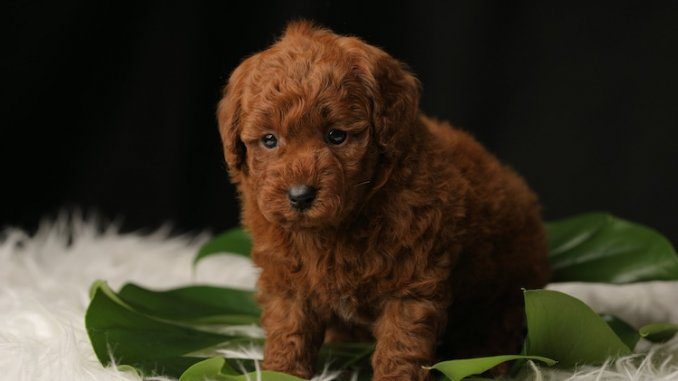
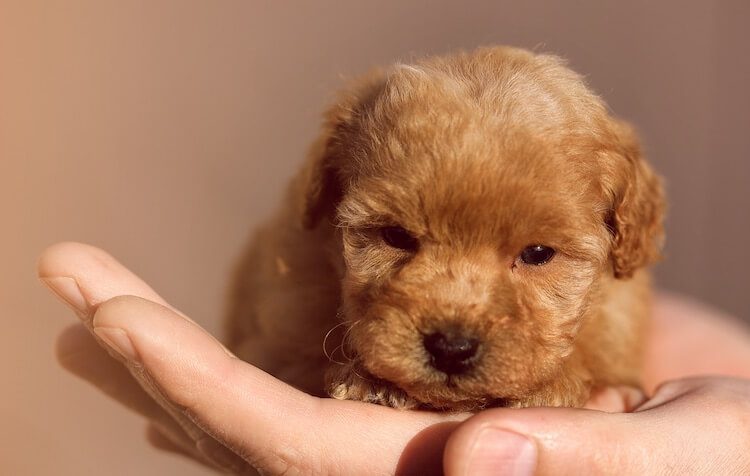
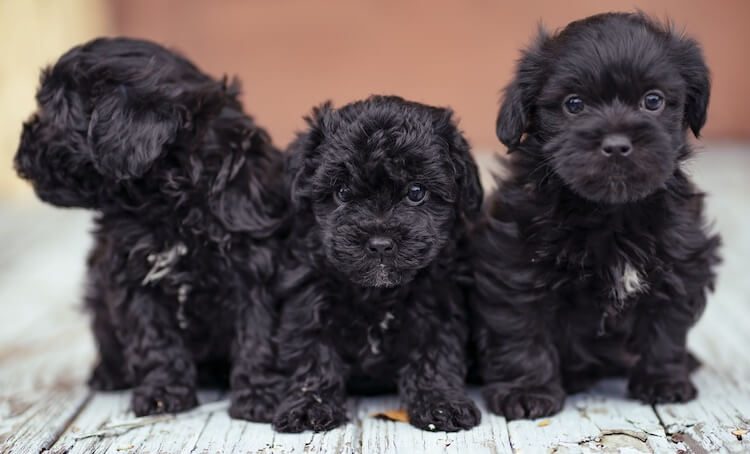
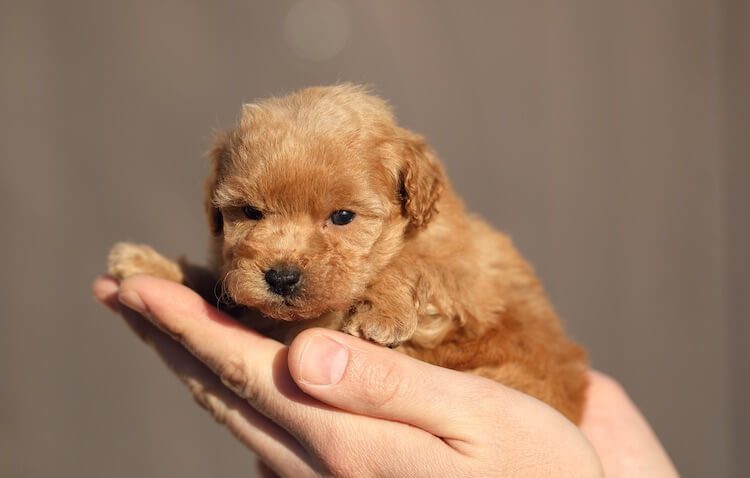
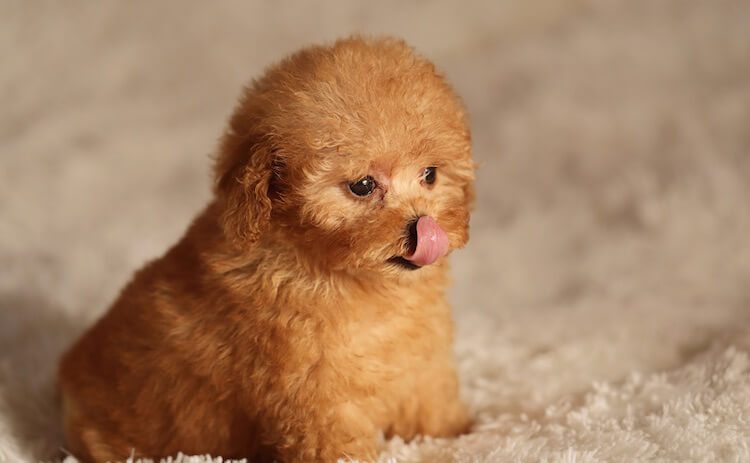
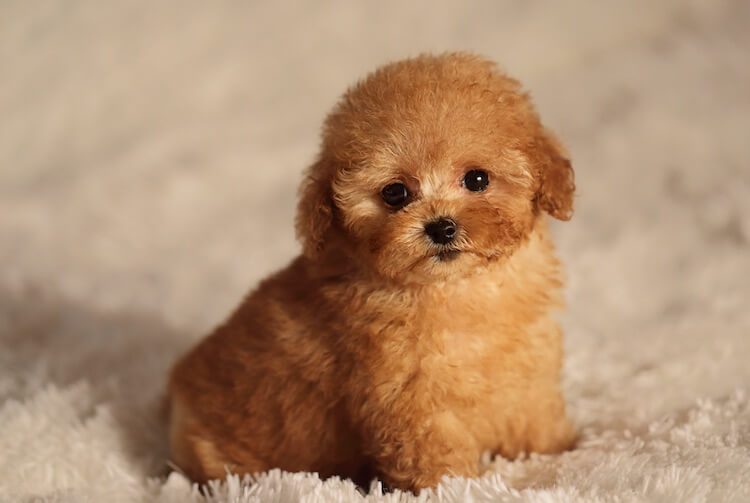
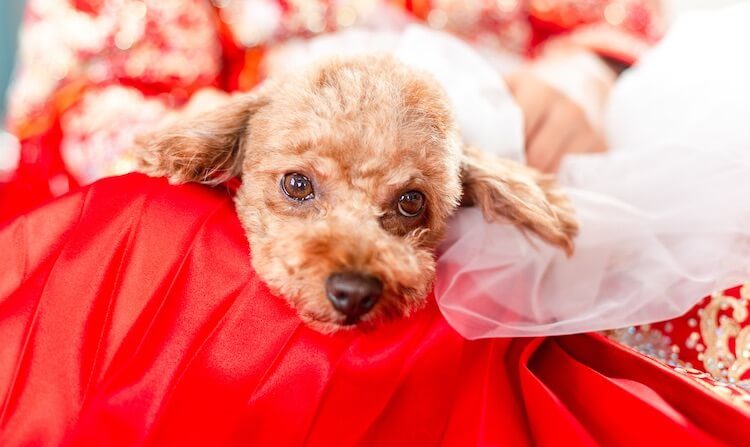
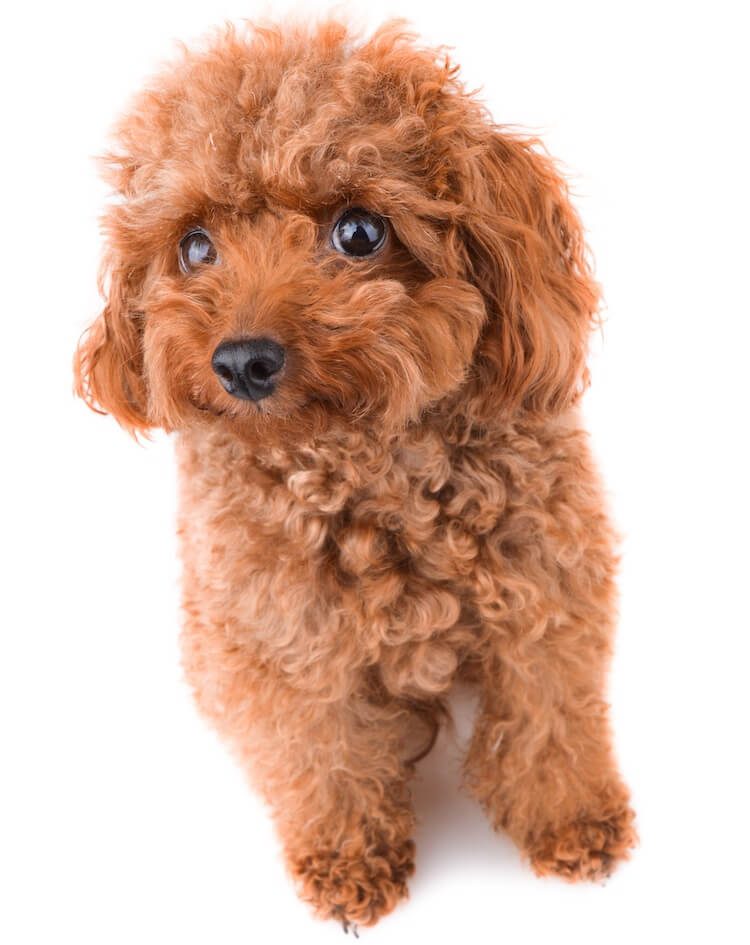


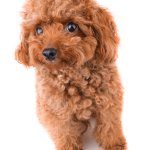






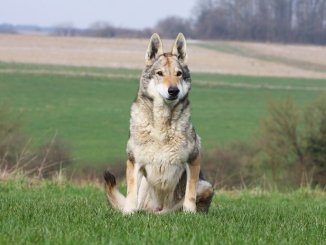
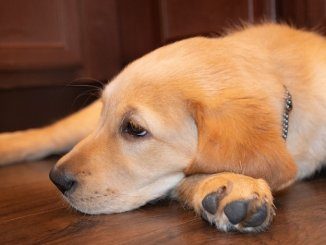
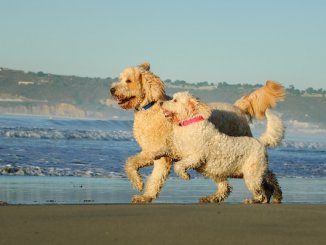
That was a very interesting article and informative article. Thank you
Yes very helpful
In health complications, you omitted the fact that the breed will almost always have a collapsed trachea. It’s not that big a deal, but becomes bothersome for them when the air quality is poor or if they are overexcited. If you pick them up for some reason it stops almost immediately.
Thank you for sharing this Nida 🐾
Thank you for sharing, I love my miniature teacup poodle and I am the owner of two as they are my babies. I love and cherish them! Tracy
Tracy can you share with me where you got you poodles from. I have been searching for months.
Yes I’d like to know as well. Where can I find one?
Hello and great evening. I was surfing the web for me a little baby/puppy however if you don’t mind me asking where did you find you pups at.
I would love to know a reliable breeder for these little babies please.
Preferably in NSW.
Hi Tracy,
I’m Bella and so want to purchase a tea cup size and have a Lady named Wendy trying to sell me o e for 600.00 ??? Is this a Shady Deal in Your opinion??
Thank you for sharing. I am a first time owner, very informative article!
Where did you get your Tea Cup Poodle?
I’m finding it hard to find a breeder.
SO helpful!! Thank you! 🙂
Planning to get one tomorrow,